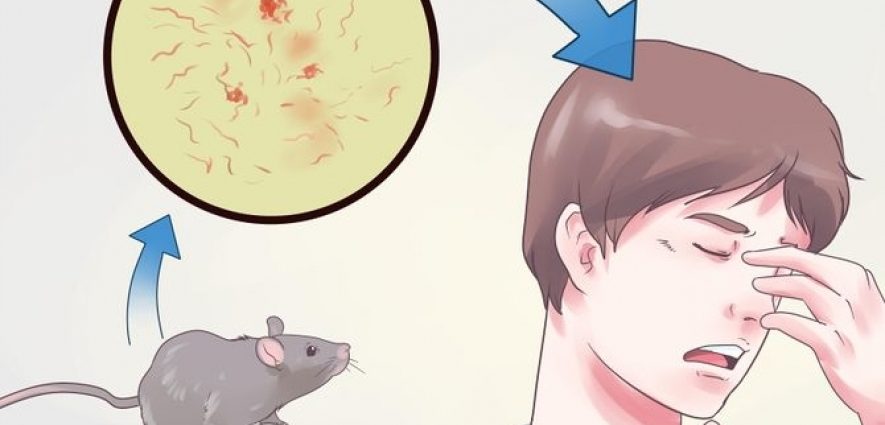This disease is popularly called mouse fever. Its scientific name is hemorrhagic fever with renal syndrome. This is the general name for a group of diseases with identical symptoms that are caused by several types of hantavirus. Mortality from mouse fever is quite high – about 12%.
For the first time this disease was registered in the middle of the last century. During the Korean War of 1950-1953, more than 3000 UN soldiers suddenly felt unwell, which quickly turned into serious problems – internal bleeding began and kidney function was impaired. The level of medicine at that time did not allow to establish the cause of the disease. And only in 1976, Dr. Lee and Johnson managed to understand that the disease is caused by a new virus – it was found in field mice. Then the mouse virus was compared with that found in patients, and the cause of the disease became clear.
Mouse fever symptoms
It is not easy to recognize mouse fever at the initial stage, because the first symptoms are very similar to the usual flu: the temperature rises sharply to 40 ° C, the person is shivering, the body aches, weakness is felt, the head hurts, constant dryness in the mouth torments.
Sometimes the pressure drops, bradycardia (slow heartbeat) begins. There may be conjunctivitis, a rash, and redness of the skin. This state usually lasts 3 days. Recognizing mouse fever at this stage is very difficult.
At the second stage of the disease, the kidneys are affected – pain in the lower back occurs, nausea and vomiting appear, which occur several times a day. There may be abdominal pain, bloating. Swelling of the face and eyelids. Such symptoms usually appear on the 4th day of illness and they are very dangerous, because it is at this time that fatal complications can occur – internal bleeding. This stage lasts 5-11 days.
With proper treatment, a person recovers in about 3 to 6 weeks. If there were complications, the disease can drag on for six months.
The incubation period for mouse fever is approximately 2 weeks.
Mouse Fever Treatment
There are no folk remedies for treating mouse fever – this is a deadly disease and self-medication is unacceptable here! At the first sign of illness, immediately consult a doctor! Be sure to tell us where you have been, whether you have been in contact with rodents.
Mouse fever is treated only in a hospital, it will not work to lie down at home. To stop the disease, Ribavirin is administered intravenously – this is an antiviral drug.
However, against the background of mouse fever, serious complications can develop:
- pulmonary edema;
- meningitis;
- abscesses;
- hemorrhage in the brain;
- myocarditis;
- pancreatitis;
- sepsis;
- renal insufficiency.
That is why it is important to see a doctor as soon as possible – the hospital will be able to quickly adjust the treatment.
Prevention of mouse fever
Most often, mouse fever is infected in the country – the risk is especially high during the general cleaning of the house after the winter. Here it is important to follow a number of rules:
- remove dust and debris with a vacuum cleaner, not a broom – the virus enters the body along with dust;
- clean with a mask, and even better in a respirator, gloves should be on your hands;
- Be sure to throw away food damaged by mice – it is strictly forbidden to eat them!
However, the risk of contracting mouse fever is high throughout the summer. Therefore, in the country, you must always follow the rules of hygiene:
- do wet cleaning more often;
- ventilate the rooms;
- store food in tightly closed containers – glass or metal;
- wash your hands thoroughly after working in the garden and garden;
- put things in order on the site, remove all rubbish so that mice have nowhere to nest;
- seal all openings for ventilation in the house and cellar with nets;
- Set up rodent traps in your home.
There are rules for outdoor recreation:
- avoid places where rodents can be;
- wash your hands before eating;
- eat only boiled, fried or baked foods – heat treatment kills the virus.
Specialist commentary
Hantavirus, which causes hemorrhagic fever with renal syndrome, is common in Asia, explains PhD, virologist Anna Demina. – It also exists on the territory of Russia – we have at least 8 serotypes. Contagious in rodents are urine, saliva, excrement. A person can become infected by airborne dust, inhaling excrement, from products contaminated by mice and from an animal bite – this is less common, but also possible.










